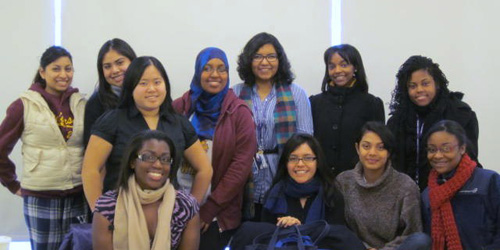
All first-year students are required to take a First-Year Writing (FYW) Course. This page explains that requirement in detail.
The First-Year Writing Requirement
First-Year Writing (FYW) courses provide a common introductory experience in college-level thinking and writing for all students at Wellesley. These courses serve as a launching point for developing advanced writing skills, and students will continue to practice and enhance these skills in work they do across the curriculum throughout their college careers.
First-Year Writing courses are numbered WRIT 101 to WRIT 198. Students may choose to take a standard FYW course (meeting two periods a week and addressing a well-defined topic related to the instructor's expertise), or to study writing as part of an introductory course in another department. These latter are called combined courses and have departmental course numbers in their titles, for example, WRIT 107 / ARTH 100. The combined courses carry one unit of credit, fulfill distribution and/or major requirements, and meet for at least three periods each week.
All students are required to take their FYW course in either the fall or spring semester of their first year at Wellesley.
First-Year Writing courses are not open to auditors. Students may not take a second semester of FYW unless they have the written permission of the Director of the Writing Program. Writing courses offered during the summer session at Wellesley do not fulfill the writing requirement.
Writing Program Learning Outcomes
Students who successfully complete their first-year writing (FYW) course will have shifted their orientation as writers from an inward-facing mindset (writing as a perfunctory performance of competence, reliance on the five-paragraph essay, emphasis on the writer) to an outward-facing approach (writing as a form of learning and of teaching, use of more flexible and sophisticated forms of writing, emphasis on the reader).
This shift in orientation will be reflected in students being able to:
- Approach writing as an evolving process that requires them to brainstorm, draft, share, reflect, and revise.
- Understand the mechanisms of sentence structure and writing design that produce precise and reader-friendly prose.
- Write with an attentiveness to genre, medium, and audience, and make appropriate choices regarding language, register, evidence, and argument.
- Locate, analyze, and evaluate different types of sources, and integrate them effectively into evidence-based writing.
- Write with purpose and have a stake in their ideas.
Frequently Asked Questions
